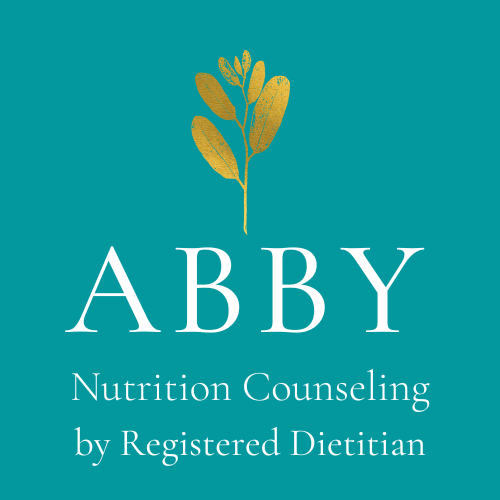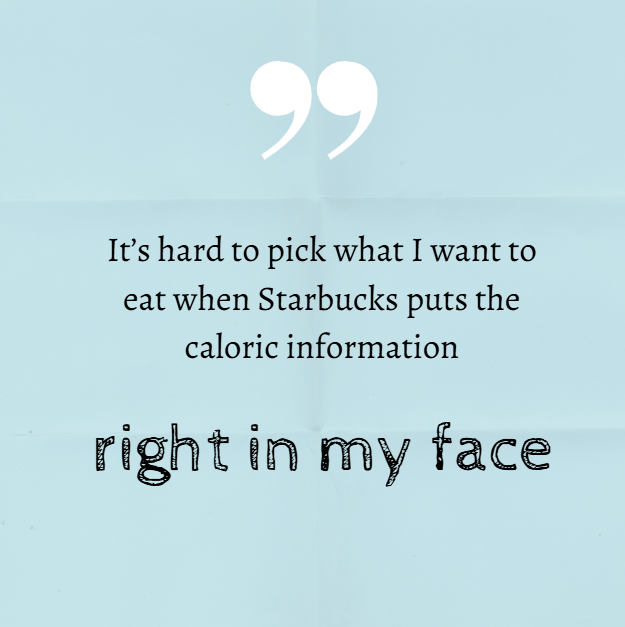Client Quote #49: in my face
Many businesses started the initiative of putting caloric information likely with the best of intentions to help consumers make informed decisions in a weight stigmatized world. However, diet culture has turned this tool into an omnipresent food police, a moral compass. High calorie bad, low calorie good- regardless of individual needs or preferences. The shame it can create often perpetuates more self-harming behaviors.
When our relationship with food is fundamentally rooted in survival, it has a very different way of judgment. So when it notices we need more energy, it will ask for energy. If it knows we are desperate for energy, it will ask for the most efficient way to get energy. It’s not going to give you a preference for leafy greens and quinoa salads- it’s going to give you a strong preference for sweets, chips, fried foods. It doesn’t think this is a morally bad decision or a health-harming decision, it thinks it’s a life-saving one. All foods have a function to provide, it depends on what your body needs. When we deviate from honouring our body’s very reasonable way of asking to be nourished, we can end up with a stressful relationship with food where binge eating, emotional eating can escalate to compensate for deprived needs.
Take labels with a grain of salt. Your preferences should also count.

